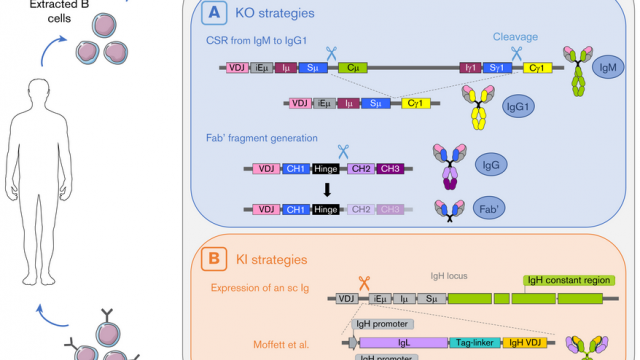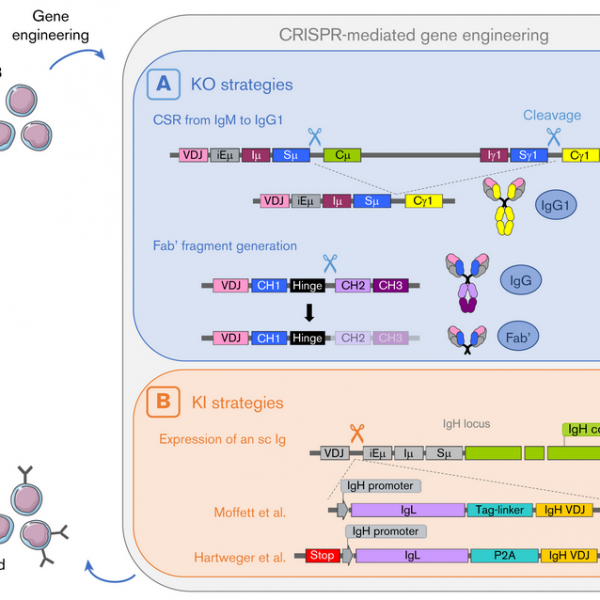
Immunotherapy perspectives in the new era of B-cell editing
Prof. Michel Cogné and Prof. Christophe Sirac have published in Blood Advances an article about Immunotherapy perspectives in the new era of B-cell editing.
Since the early days of vaccination, targeted immunotherapy has gone through multiple conceptual changes and challenges. It now provides the most efficient and up-to-date strategies for either preventing or treating infections and cancer.
Its most recent and successful weapons are autologous T cells carrying chimeric antigen receptors, engineered purposely for binding cancer-specific antigens and therefore used for so-called adoptive immunotherapy. We now face the merger of such achievements in cell therapy: using lymphocytes redirected on purpose to bind specific antigens and the clustered regularly interspaced short palindromic repeats (CRISPR)/CRISPR-associated protein 9 (Cas9) revolution, which conferred genome-editing methodologies with both safety and efficacy. This unique affiliation will soon and considerably expand the scope of diseases susceptible to adoptive immunotherapy and of immune cells available for being reshaped as therapeutic tools, including B cells.
Following the monumental success story of passive immunotherapy with monoclonal antibodies (mAbs), we are thus entering into a new era, where a combination of gene therapy/cell therapy will enable reprogramming of the patient’s immune system and notably endow his B cells with the ability to produce therapeutic mAbs on their own.
Full text link : https://doi.org/10.1182/bloodadvances.2020003792

